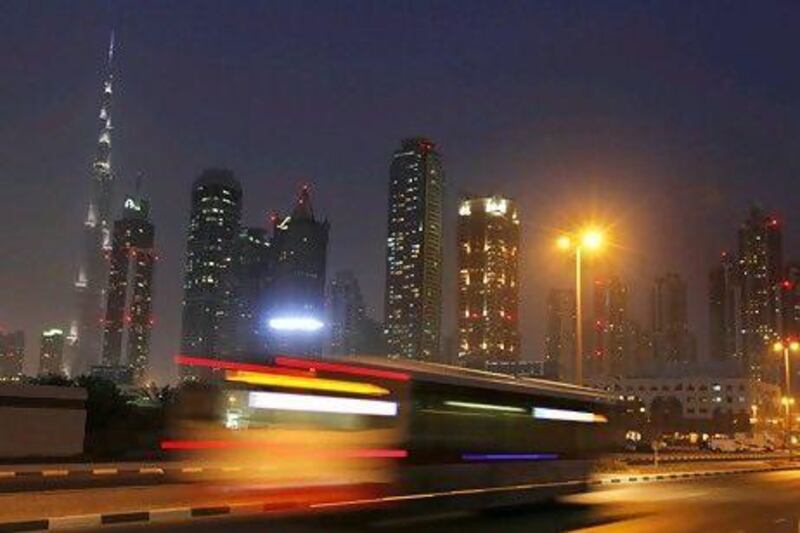Dubai Municipality plans to use solar technology to reduce its consumption of traditionally produced electricity and water by 20 per cent over the next five years.
"[The municipality has] taken a number of initiatives in terms of energy efficiency and conservation," Nejib Zaafrani, the chief executive of the Dubai Supreme Council of Energy (DSCE) said yesterday.
Solar energy plays a part in the efforts to go green and lighting in parks and public places will in future be powered by solar panels.
This year, the municipality has also signed up to a UAE Government programme to retrofit buildings with systems designed to save energy. As part of its overall energy strategy, the DSCE has identified a number of "quick wins" - measures that can easily be implemented to conserve energy and water.
Other Dubai Government entities will join the Municipality with similar efforts.
"We're moving to a wider space in energy savings by implementing energy conservation measures," said Mr Zaafrani. Dubai has managed to curb the rising costs of utility provision by drawing up a programme to moderate the consumption of electricity and water.
Deterred mainly by the resultant hefty increases in utility bills, Dubai residents have reduced their use of both.
This has enabled the Dubai Electricity and Water Authority (Dewa) to postpone the construction of a large-scale power plant, the 1,500 megawatt Hassyan project.
Dubai relies entirely on imports to meet its requirements for natural gas - the primary fuel for power plants in the region.
The emirate is forced to import expensive liquefied natural gas to meet spiralling demand during the summer and is passing on the additional cost to consumers in the form of a fuel surcharge.
To reduce the dependence on fossil fuels, the DSCE in January announced plans for the 1,000MW Mohammed bin Rashid Al Maktoum Solar Park.
This renewable energy facility is due to be completed by 2030.
[ fneuhof@thenational.ae ]
twitter: Follow and share our breaking business news. Follow us
iPad users can read the digital edition of business section as it was printed via our e-reader app. Click here





